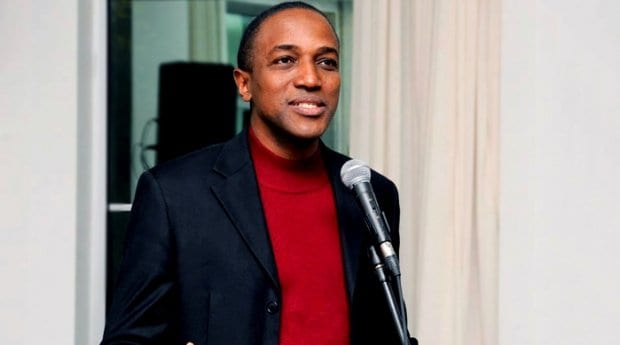Maurice Tomlinson is at the end of a second long day of testimony in a trial that could dramatically reshape the legal climate for lesbian, gay, bisexual and transgender people in a region sometimes dubbed as the most homophobic place on Earth. It’s a high-stakes gambit, but it’s barely the beginning of a much longer struggle to achieve equal rights for queer Caribbean people. Despite the gulf of challenges before him, Tomlinson comes across as poised and fired up.
Consider the Kafkaesque situation he’s found himself in: he’s pressing a case at the Caribbean Court of Justice (CCJ) against the nations of Belize, and Trinidad and Tobago. Both countries are members of the Caribbean Community (CARICOM), a sort of European-Union-style supranational organization that guarantees its nationals free movement among member states. As a citizen of Jamaica, Tomlinson ought to have an absolute right to enter those countries, but legally cannot because both have statutory bans on “homosexuals” entering their countries. And since the CCJ is in Trinidad, Tomlinson can’t even appear at his own trial. He’s been videoconferencing from a hotel in Jamaica.
Doubling down on the absurdity, both countries are pleading that Tomlinson doesn’t have cause because the bans are never actually enforced, yet they’re continuing to defend their bans in court because they have no intention of repealing them. Belize has requested legal costs from Tomlinson if he loses.
The situation doesn’t appear to faze him.
“Trinidad had seven lawyers on this case . . . Belize had three lawyers they had to fly over, an immigration officer they had to fly over,” he says. “They spend so much money on a law they say they have no intention of enforcing.”
CARICOM itself argued on Tomlinson’s side, saying that the impugned laws violated the CARICOM Treaty. Tomlinson believes a victory is in the cards, but a final ruling could still be months away.
“There’s an elephant in the room no one wants to address. Trinidad is facing an election and homosexuality is deeply unpopular,” he says.
While the core issue may appear trivial, it creates a real burden for Tomlinson — his 12-year-old son lives in Belize, and Tomlinson is legally barred from visiting him.
Tomlinson has joked that his motivation for fighting for gay rights in the Caribbean is selfish: the 43-year-old wants to retire in his home country of Jamaica when he’s older. But when pressed, he says the real reason he fights is because he has a power that many in the region don’t: freedom to leave it.
“I know my privilege. I can come to Jamaica, do my work, and leave. That’s not the reality for many of the people I try to advocate for. They’re the ones who are facing death threats or being evicted from their homes or job losses,” Tomlinson says.
“They need me to publicize the plight that they’re experiencing. Without a doubt that’s what motivates me. It may come across as paternalistic. I’m trying not to be, but the idea is I can do something.”
Tomlinson grew up in Jamaica and has been confronting homophobia for almost 20 years. He became a Canadian when he married his husband in 2012, but only fled to Toronto when he and his family began receiving death threats after a local newspaper published photos of their wedding. “I wasn’t planning to leave so abruptly . . . but after they outed me it really wasn’t an option anymore,” he says.
If his Canadian passport offers him some protection in the region, that in turn gives him the freedom to challenge what he sees as the biggest obstacle to the LGBT-rights movement: ignorance.
“I shared with a Jamaican political official that gays are being killed and we need to do something about it, and he looked at me blankly and said, ‘What’s your problem? We kill straight people too.’ There’s not an understanding or a willingness to appreciate the vulnerabilities of people based exclusively on sexual orientation,” he says. “The articulation is that level. It’s very unsophisticated, basically ignorant, by academics or people who are well educated.”
LGBTI Aware Caribbean — a group Tomlinson founded with his husband, former Toronto Police LGBT liaison Tom Decker — has been working to overcome prejudice by providing sensitivity training to police forces across the Caribbean. The training, which is modelled after training Decker helped develop for the Toronto Police, has already been delivered in Barbados, St Lucia and Suriname. Tomlinson says they aim to expand their training to media and health care workers, to help ensure that queer people are given fair representation and service.
>Next: Changing the face of the Caribbean


 Why you can trust Xtra
Why you can trust Xtra


